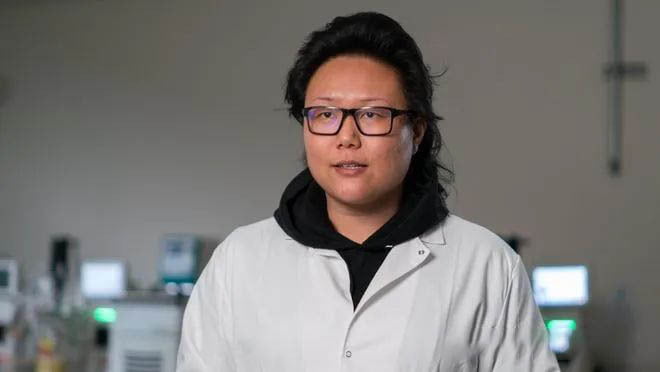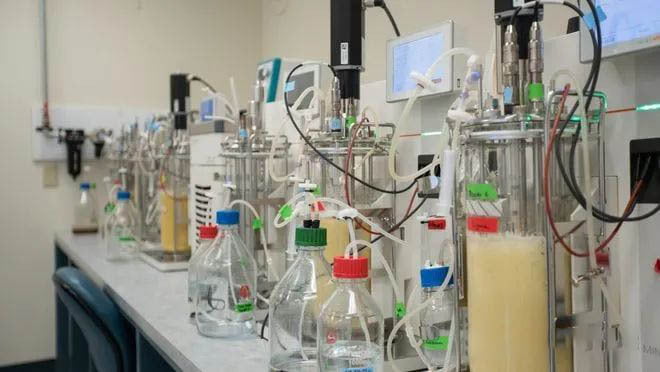On March 3, 2023, the Amazon Climate Pledge Fund announced its investment in Genecis, a Toronto, Canada-based bioplastics company. Luna Yu, the founder of Genecis, is 28 years old and a woman of Chinese descent, based in Yunnan, China.
Genecis is a company that uses food scraps to convert biodegradable plastic PHAs, which can be used as an alternative to traditional plastic packaging.

Genecis is also the fund's first investment in a company that directly addresses the use of fossil fuel-derived plastics and the global warming factors they contribute.
The name Genecis comes from the combination of "genesis", which represents the creation of something new, and "cis", which represents the spatial arrangement of atoms in a molecule in polymer chemistry. Genecis, meaning the commercialization of sustainable production of innovative products created using natural PHAs.
According to Luna, she came to Canada from China with her parents in 2002 when she was seven years old. Her mother is a wastewater treatment engineer and works for Environment Canada. In ninth grade, Luna followed her mother to her office and saw her working in the cubicle. Luna found it hard to imagine herself living her life like that, and she even began to panic a little. It was at that moment that she planted the seed of entrepreneurship in her heart and took the initiative to gain more knowledge about business while she was in college.
She joined the bioplastics industry at the age of 22 after graduating with a master's degree from the University of Toronto. The entrepreneurial process was full of hardship and innovation. At first, she had little money and went to Canadian Tire to buy a few rice cookers and convert them into bioreactors.
It's super simple, just like brewing beer," she says. All you have to do is feed the food waste as a source of energy or food to bacteria that consume the sugars and fatty acids in the organic waste. With metabolism, bacteria convert food scraps into biodegradable polyhydroxyalkanoates, or PHAs for short."

In the laboratory, PHA is extracted, purified and made into pellets, which are then injected into molds to make disposable plastic alternatives, such as food and medical packaging. Luna says, "One of the products we tried to launch on our own last year was the textile market." She uses PHA instead of traditional synthetic plastics to make polyester shirts.
According to Genecis, PHAs can be customized to meet technical specifications for rigid plastics, flexible films, and everything in between.
The Amazon Climate Promise Fund is a $2 billion dedicated venture capital program to support sustainable technologies and services that will help Amazon and other companies meet the Climate Declaration commitment to achieve net zero carbon emissions by 2040.
In November 2022, Amazon committed an expected $53 million in funding, with $3 million for a partnership with the U.S. Agency for International Development (USAID) and $50 million in direct investments in women-run climate technology companies.
Today, Luna was successful in securing a portion of Amazon's $2 billion Climate Pledge Fund, but she did not disclose the exact amount. An Amazon spokesman said the investment in Genecis came from the fund's $50 million Women Founders Program, with investments ranging from hundreds of thousands to millions of dollars, usually less than 3 percent.
In August 2022, Genecis announced that it had secured $7 million in Series A funding led by Khosla Ventures and BDC Capital's Cleantech Practice. This round includes participation from Gullspang Re:food, as well as returning investors such as AME Cloud Ventures, IT Farm and Heinz Group.
This funding from Amazon will help Luna further expand the reach of Genecis as she looks to integrate this sustainable, biodegradable alternative to PHA plastic into Amazon's supply chain. This is expected to not only reduce the production and use of plastic products, but also to increase consumer awareness and acceptance of bioplastic products.
Luna says her goal for the next 10 years is to make PHAs as ubiquitous as possible.

